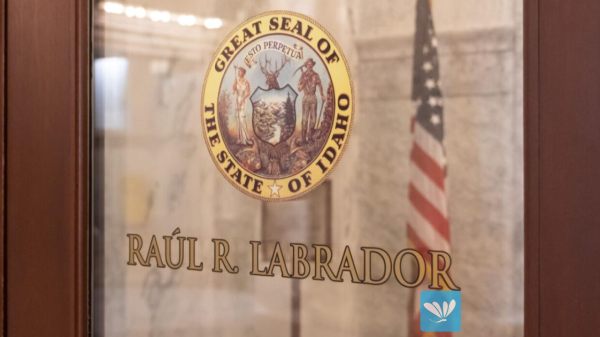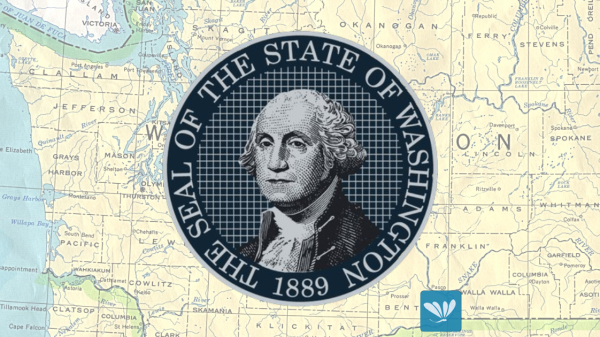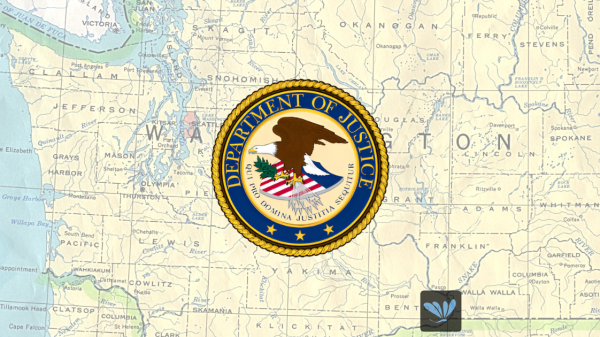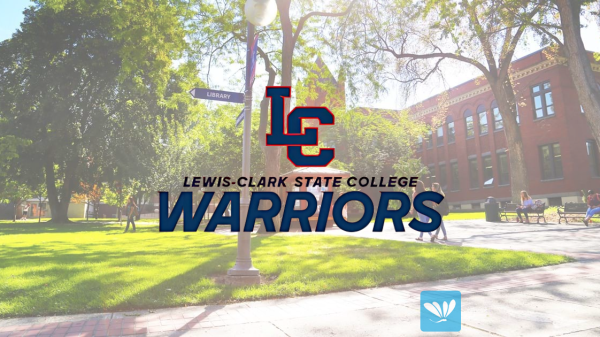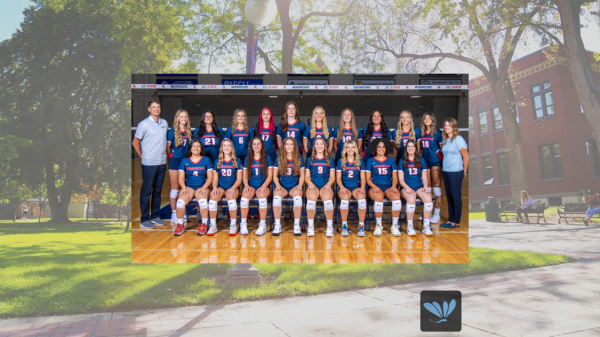Standing in front of the historic home of Washington State University presidents, Bill Plaskett thought back on the stories his father told him about Ida Lou Anderson, his great aunt whose name now adorns the landmark.
“(She had) an indomitable spirit, because she could have quit so many times, she could have not done certain things, and she was a trooper with a lot of heart,” Plaskett said.
The Ida Lou Anderson House was formally dedicated Thursday in front of a crowd of dozens of members of the WSU and Pullman community, where it now serves as the official residence of the Pullman campus chancellor. Its namesake was a pioneering figure in the university’s history, having overcome tremendous physical challenges imposed by childhood polio to both graduate from the college and teach a generation of students.
Among those who benefited from Anderson’s tutelage was Edward R. Murrow, the nationally recognized broadcast journalism luminary and eponym of WSU’s College of Communications.
Anderson was the exact kind of person WSU Pullman Chancellor Elizabeth Chilton was seeking when the opportunity to rename the President’s House arose.
“…I wanted to find someone from WSU’s history who faced adversity head-on, and whose experience here helped them overcome these keen challenges, embrace their identity, and find a community.”
WSU Pullman Chancellor Elizabeth Chilton
Washington State University
“When I first started to consider the renaming of the house, I wanted to find someone from WSU’s history who faced adversity head-on, and whose experience here helped them overcome these keen challenges, embrace their identity, and find a community.”
Faced with that criteria, Trevor Bond, WSU’s vice provost for libraries, named Anderson with no hesitation, Chilton recalled. From there, Chilton’s team and Bond worked to craft a renaming proposal for the WSU Board of Regents, which was approved last November.
After a reading of WSU’s Land Acknowledgement from Tommy Williams, a retention specialist with Native American Programs, President Kirk Schulz took to the podium to reflect on the time he and First Lady Noel spent living there. To them, it was much more than a place that, by nature of being across the street from Fraternity and sorority house, gave them an inkling into the preferred music choices of students relieving stress from a week of classwork.
“If you live here, it can feel just like a house, but to members of the campus community it really represents a gathering space,” Schulz said. “It really is an important symbol, I think, of an academic environment and a culture that we have in a college town.”
WSU Regent Marty Dickinson carried on the reflective mood, recounting her experiences as a student living in one of those houses across the street. She recalled having to be an emissary between students and then-President Sam Smith. It’s also a space where she was able to meet with professors and other interesting people as a student, with Thursday’s proceedings representing “a full circle moment.”
As part of the ceremony, Chilton presented Plaskett with a framed letter remembrance of his great aunt. Plaskett has donated more than a dozen telegrams between Anderson and Murrow as well as letter between her and previous WSU leadership.
As part of the renaming ceremony, a new plaque bearing information about Anderson was dedicated, with a new portrait of her prominently featured in the foyer.
WSU still maintains an archive of Anderson’s materials, including class notes, photographs, and reading lists. A note Anderson wrote to then-President E.O. Holland shortly before her death about her teaching philosophy read, ”If, because of me, some of our students are able to make a little more of their lives, always remember that in giving to them, I found my greatest compensation for a strange and difficult life.”












